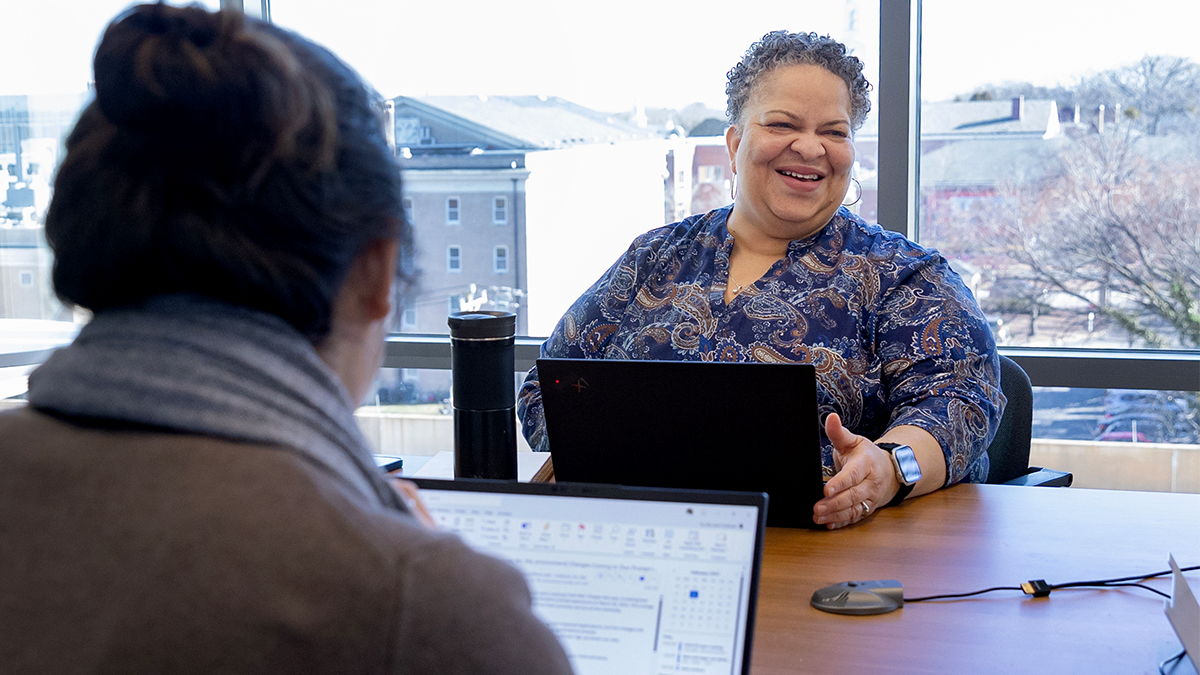Outreach manager protects NC families
Neasha Graves provides information and resources to educate communities about environmental health hazards.

It’s easy to imagine Neasha Graves reaching her hands across North Carolina to shield families and children from harm.
Graves is the environmental health outreach manager in the UNC Institute for the Environment’s Center for Public Engagement with Science. For 17 years, she has equipped public health professionals in local agencies and nonprofit organizations with information and resources to teach families how to avoid exposure to lead and chemical compounds, cancer-causing substances and other environmental health hazards.
Graves answered The Well’s questions about how and why she helps families.
How would you describe your job?
It’s like a marriage. I combine informing communities about environmental hazards with work by scientists and researchers.
Our office builds partnerships with public health agencies and works with teachers and students. I work with local and state health departments, teaching and training, developing trainings and other programming for public health professionals and professionals in community organizations with a health focus. My work on childhood lead poisoning, for example, helps them address environmental health issues affecting their baby or young child.
Sometimes people call me and ask, “How do I handle this issue?” I had calls recently from women concerned about their grandparents’ substandard housing. I go through the issue with callers and send a follow-up email to make sure they have the resources.
How do you help protect families?
One example is our work with the state health department’s Children’s Environmental Health unit to develop trainings and educational resources and materials. We also help them share information with public health professionals — nurses, social workers, environmental health specialists or case managers at local health departments — or at nonprofits with a health mission. There’s nothing like helping nurses and social workers who are on the ground, visiting homes, talking to mom and dad or to kids about environmental health issues. Local health educators need to know how to communicate what we’re teaching them to those families.
Where do you get your information?
Our work is rooted in science. We pull from research at UNC Gillings, the National Institute of Environmental Health Sciences, the CDC and other agencies. We also share recall notices from the Consumer Product Safety Commission, like a recent recall on lead-contaminated children’s tiaras sold in stores. We sent it to one of our biggest networks of public health, housing and nonprofit agencies — the NC Healthy Homes Task Force; it’s a few hundred local folks – who told families about it. An example of an emerging issue is how various agencies are addressing applesauce products that contain lead.
Having access to Carolina’s researchers works wonderfully. For me, many researchers are in epidemiology, other departments in the School of Public Health and in the School of Medicine. It’s rewarding to work with researchers who engage communities, whether they’re working on breast cancer susceptibility among certain populations or air quality and its effects on asthma. They share emerging research on all sorts of subjects like environmental asthma triggers and how flavored vaping affects lung health.
What inspires you?
When I’m talking with someone who needs help, I think about the community where I was born and raised — Moncure, North Carolina, in Chatham County. I imagine my grandparents’ home and my neighbors’ homes. I think about my community and the countless other ones in this state just like it and the families and health professionals who need these resources. People may assume, “Oh, call the health department. They can fix it.” No, those people are stretched, and they need help, too. I’m proud that we provide information and resources that help many of them.







